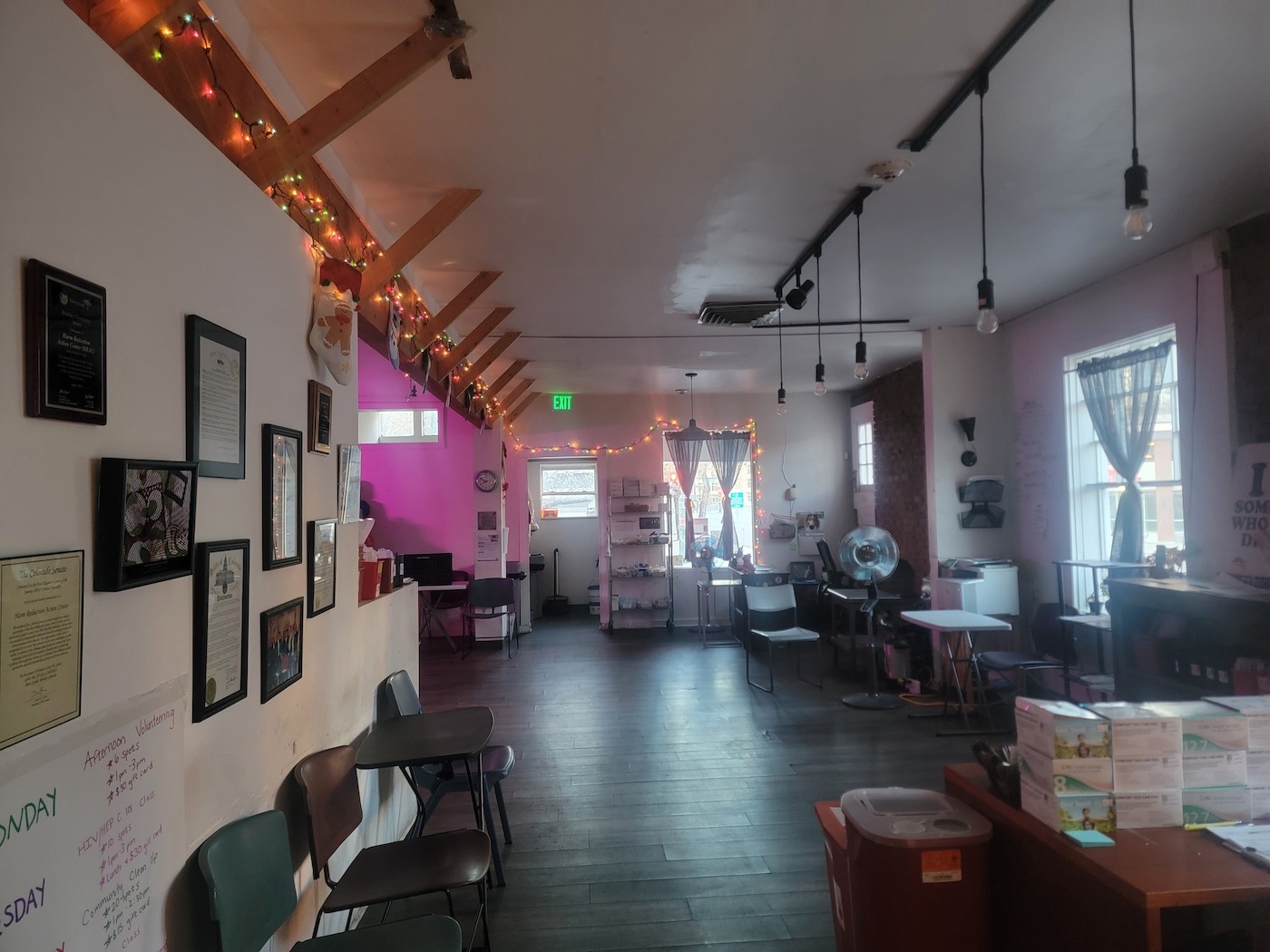On January 13, the City Council of Denver, Colorado, voted to repeal an ordinance that severely restricts the number of syringe service programs (SSP) operating in the city, as well as their location. The final decision on the measure now lies with Mayor Mike Johnston (D).
An ordinance passed in 1997 caps the number of SSP at just three, in a city where the population has grown to well over 700,000. They’re also barred from operating within 1,000 feet of any school or daycare center, though the current SSP have some exemptions. Denver’s three SSP are run by the Harm Reduction Action Center, Colorado Health Network and Lifepoint by Vivent Health (a mobile program).
Back in October, as Filter reported, the City Council held discussions about repealing the law. Ahead of the second and final vote on January 13, the Council took a preliminary vote on January 6, when eight out of 12 members voted to give initial approval to the proposal, which is sponsored by Councilmembers Serena Gonzales-Gutierrez, Sarah Parady and Stacie Gilmore.
“When I learned that Denver is alone among large American cities in restricting where syringe access programs can operate in relation to schools, I was honestly surprised,” Councilmember Parady told Filter by email. “A school-based distance restriction is really irrational for these programs, which do not have any controlled substances on site and are very strictly regulated by the public health department. And in Denver’s real estate market, since they also have a pretty narrow zoning classification, the restriction has made it impossible for our most successful program to relocate when their lease ends.”
The final vote was 8-5—one vote short of the threshold to prevent Mayor Johnston from vetoing it.
“I don’t believe that if this bill passes—and it’s signed by our mayor—that anything is going to change in your life,” Councilmember Paul Kashmann said, explaining his vote in favor. “Unless one of your relatives who’s on the edge happens to get a clean needle and stays alive long enough to get into treatment.”
The final vote was 8-5—one vote short of the threshold to prevent Mayor Johnston from vetoing it. In 2024, Johnston exercised his veto power to kill a “freezing sweeps” bill, which would have limited city officials’ power to clear encampments of unhoused people. He also vetoed an effort by the Council to fund a universal basic income program, which would also have supported people experiencing homelessness, arguing instead that Denver’s “rapid rehousing model” was more effective.
Lisa Raville, executive director of the Harm Reduction Action Center, told Filter ahead of the vote that she and her organization had met with most of the councilmembers to share evidence and testimony in support of repealing the restrictions.
“We are a great neighbor, and we’re very collaborative with the city,” Raville said. “Most of City Council already knows and works with us. Oftentimes if they have a tricky area with high drug trafficking or encampments, instead of calling law enforcement they’ll reach out to us, and have our street outreach team go out and engage with resources, referrals, supplies and naloxone. Most of them have known us as a collaborative partner.”
Some councilmembers who opposed the idea of lifting the restrictions countered with another proposal to allow hospitals and urgent care centers to distribute syringes. Raville said she would welcome having more places where people could access syringes, but believes dedicated harm reduction programs are the best option.
“People who use drugs and health care providers have had a tumultuous relationship for years,” she said, “and for us in Denver there’s been a deeply entrenched rumor that folks are going to be warrant-checked at the emergency department. We’ve passed legislation earlier to reduce that. Harm reduction programs are by people who use drugs for people who use drugs. People feel more confident the quality of services they will get will be stigma- and judgement-free.”
Raville explained that the mayor’s signature on the new Council measure is vital to the survival of her program.
As Filter previously reported, the Harm Reduction Action Center’s downtown program is facing an existential crisis: Its current location is likely being sold by the landlord, and they need to find a new home. The clock is ticking, because the program received a grant from the Denver Opioid Abatement Council to purchase a new location, but the current city law restricts the options available. The grant expires if it isn’t spent by the end of 2025.
Raville explained that the mayor’s signature on the new Council measure is vital to the survival of her program; it would mean more flexibility in finding a new location, and more amenable property owners.
“If we lose this exchange site, I worry that we will see an immediate uptick in overdose deaths, infectious disease transmission, and needle waste in parks and city garbage bins,” Councilmember Parady said. “Syringe access programs are one of the most effective gateways to treatment and recovery for people experiencing opioid addiction—they literally triple someone’s likelihood of entering into recovery.”
Asked whether the Council measure would in practical terms simply allow the three existing SSP operators to expand or bring in new harm reduction programs to Denver, Raville said both are possible—but stressed that funding could be a major barrier to new programs, amid a political backlash to SSP in Colorado and nationwide.
Photograph of Harm Reduction Action Center courtesy of Harm Reduction Action Center





Show Comments